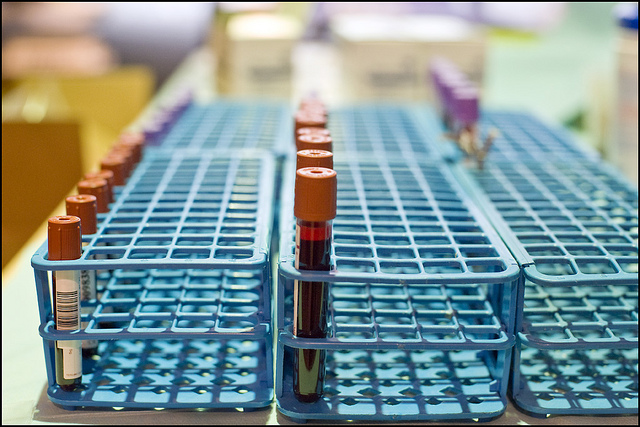Like this article? rabble is reader-supported journalism. Chip in to keep stories like these coming.
In November of 2012, Expharma/Canadian Plasma Resources applied for licenses for two plasma collection facilities to be opened in Toronto. At this time, only Quebec had legislation banning payment of donors for blood. With the threat of paid plasma clinics imminent, the Ontario legislature unanimously passed The Voluntary Blood Donations Act in December 2014.
This past February, Health Canada gave an operating license to Expharma/Canadian Plasma Resources to open the first paid-donor plasma collection clinic in Saskatoon, which opened in February 2016. The company has licenses pending in British Columbia, Alberta and Manitoba.
In March Canadian Plasma Resources CEO Barzin Bahardoust, said the company “hopes to expand to Nova Scotia, as well as other provinces, within a few years.” Bahardoust confirmed that representatives from his company met with the N.S. government who were supportive of the idea of the company setting up shop in the province.
In the Maritimes, Canadian Blood Services (CBS) has recently come under scrutiny after labour disputes with NSUPE, which have P.E.I. blood collection workers on strike for eight months. “CBS is being transformed into a business, as opposed to a public service or a humanitarian organization. These days it’s all about automation and squeezing efficiencies out of donors and workers,” said Ron Stockton, the business agent for the P.E.I. NSUPE local on strike.
What is at stake?
Opening up the debate around paid-donor and plasma collection is hugely painful for tens of thousands of Canadians who lost loved ones during what is now known as the tainted blood crisis. Health Canada and Canadian Red Cross purchased tainted blood from “blood brokers” to deal with a shortage of supplies at home. This resulted in 30,000 Canadians being infected with HIV and Hepatitis C. This has been called the largest public health disaster Canada has ever experienced. Survivors like Michael McCarthy have spent the past two decades fighting to obtain compensation for the victims and creating a blood system with integrity.
In an article published by the Toronto Star, McCarthy stated, “Selling blood for profit is socially exploitative. It is no different than those black markets that target the needy to sell their organs for a pittance. In turn, the organs are sold at profit. Blood is life — not as difficult to remove as a kidney, but the principle is the same.” McCarthy was lead plaintiff for Canadians Affected by Tainted Blood, the largest case of its kind resulting in $5 billion in settlements to victims.
View this video to learn more about the impacts of the tainted blood crisis and the resulting Royal Commission of Inquiry on the Blood System in Canada, commonly referred to as the Krever Inquiry.
Pushing back against private clinics
The Nova Scotia NDP have introduced NB Bill 43 “An Act to Maintain and Preserve Voluntary Blood Donations in Nova Scotia” in the provincial legislature. This bill comes after rumours were confirmed of government officials meeting with the privately owned corporation Canadians Plasma Resources. While licenses to open these clinics are provided at the federal level, provinces can make the decision not to allow compensation for donors. The bill would ensure private clinics are not allowed to pay Nova Scotians directly to donate blood and blood plasma.
This past March the N.S. Health Coalition held an information picket calling for a legislated ban on selling blood and plasma in N.S.
On News 95.7 FM Dave Wilson, the N.S. NDP Health Critic said:
“[The] World Health Organization has a goal of eliminating paid for blood and plasma by 2020… We should be looking toward doing the same here in Canada… Ontario and Quebec have both passed legislation related to pay-for-plasma clinics to restrict the possible risks.”
The introduction of private clinics with a paid donor erodes our public health-care system, opening the door to increased commercialization and privatization of Canada’s blood supply. The World Health Organization, the International Federation of Red Cross, Red Crescent Society and Canadian government have all stated that a voluntary blood donor regime is critical for the safety of the blood supply system.
More information:
Backgrounder on Plasma for Profit by Canadian Union of Public Employees
Mythbusters: Paid Plasma by the Canadian Health Coalition
Open letter on for-profit blood collection from Maude Barlow, Canadian Doctors for Medicare and many more
Take action:
Petition to the federal government rejecting pay-for plasma or blood products companies in Canada
Tell your MLA and the N.S. Health Minister Leo Glavine you want to keep our voluntary blood and plasma donor system in tact: [email protected] (902)765-4083
Send Leo Glavine a letter using the NS Health Coalition website: http://votepublichealthcare.ca/no-to-pay-for-plasma/
Share this educational video: “Why we need to ban paid plasma blood donations”
Photo: European Parliament/flickr
Like this article? rabble is reader-supported journalism. Chip in to keep stories like these coming.




